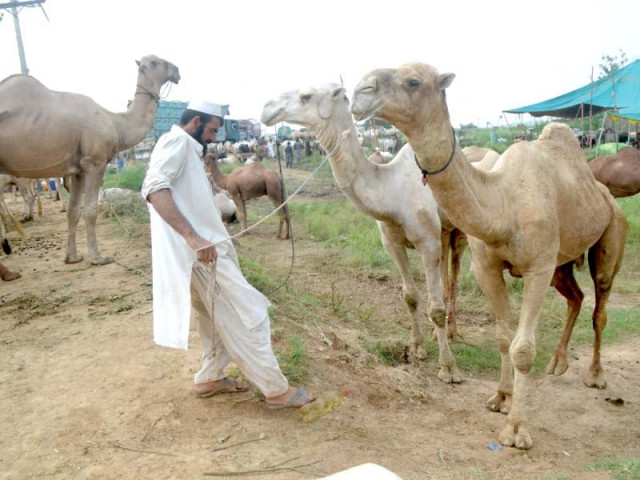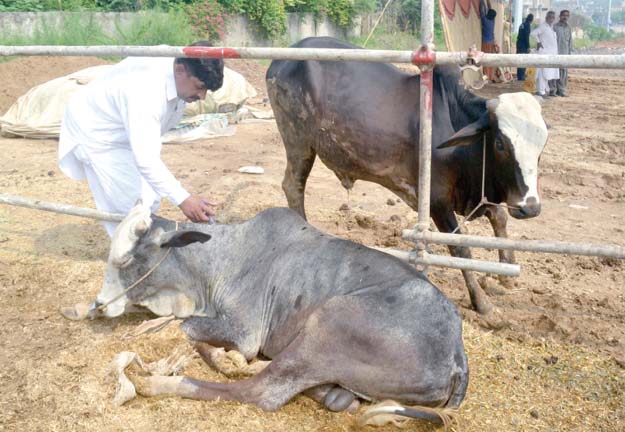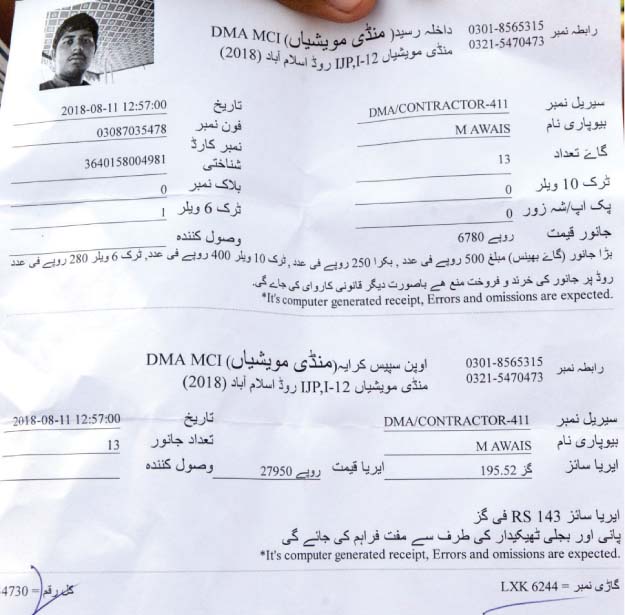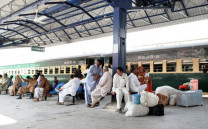Making a living: Vendors decry lack of facilities at Sector I-12 cattle market
ICTA urged to provide animals with clean drinking water and veterinary facilities

A view of a livestock market of sacrificial animals in the capital where cows are being vaccinated camels are being herded into an enclosure and a livestock trader shows a receipt of charges paid to MCI for setting up his stall. PHOTO EXPRESS
According to Pakistan Meteorological Department, another monsoon rain-spell is expected before Eid-ul-Azha which is almost 11 days away. The vendors complained that they were told that they would be provided all required facilities at the market but no practical measures are in sight.
A vendor Tariq Mehmood who came from Sahiwal, said he has brought his animal all the way to the capital for better earning and facilities as compared to the local markets but he found the condition to be no different from the last year. The management, he said was providing water for animals once a day but in such sizzling heat the livestock required water three times a day to avoid dehydration.

Another trader Muhammad Sikander from Rajanpur said they were being charged Rs2,650 for big animals and Rs1,250 for small ones but were deprived of basic amenities to survive in the scorching heat. A seller also demanded to establish a veterinary clinic for effective monitoring of livestock's health. The loss of one animal could cause them an entire profit of the whole business due to non-availability of a veterinary doctor. He also complained about the unhygienic food offered at food stalls set up in the market and asked the authorities concerned to ensure a decent standard of the food.
When contacted, an official of Islamabad Capital Territory (ICT) Administration said the missing facilities would be ensured today. Contractor of the I-12 market Raja Zahid said they were responsible for providing water, land and electricity in the area, for which he had hired a sufficient workforce.
"We are charging Rs143 per square yard to a vendor and dedicate seven square yards for each goat and sheep, while 15 squares for cow and camels," he informed APP. A vendor had to pay Rs250 entry fee for small animals and Rs500 for big animals, he added. Islamabad Metropolitan Corporation (IMC) said they were only responsible for monitoring the provision of all required facilities to the vendors for which the department had hired 20 staffers of IMC.

Health alert
While cattle have come to town, so has the fear of Congo Crimean Hemorrhagic Fever.
Rawalpindi Director of District Livestock Department Dr Shahid Sajjad has advised citizens to adopt preventive measures to contacting Congo virus while buying the sacrificial animals.
Visiting different animals markets in the Rawalpindi district, he said there was no need to be afraid of Congo virus spread as only 15 to 17 deaths were reported since 1960.
He proposed buyers to wear gloves and use masks while going to the animal markets. Dr Shahid said sacrificial animals were being transported in the city so it has been decided to create public awareness to protect the people from Congo fever and spread of virus by taking preventive measures.
He asked people to slaughter animals during day time on the occasion of Eidul Azha.
Congo Crimean Hemorrhagic Fever is a lethal disease caused by Congo virus which is present in particular tics that stick to livestock.
Published in The Express Tribune, August 12th, 2018.


















COMMENTS
Comments are moderated and generally will be posted if they are on-topic and not abusive.
For more information, please see our Comments FAQ